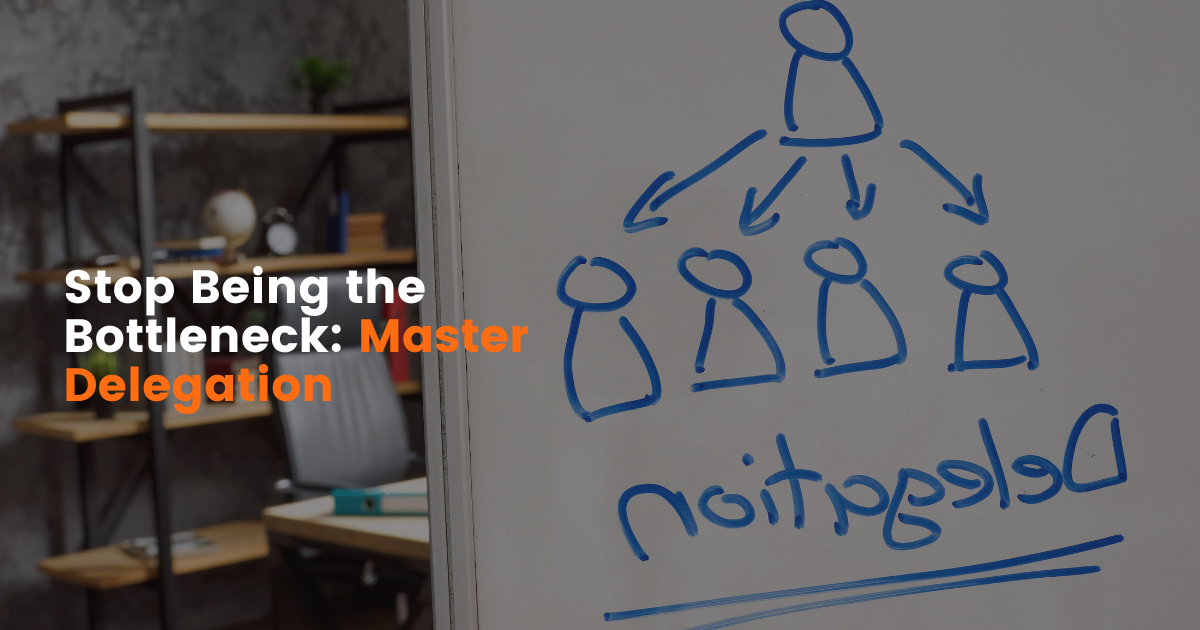 Delegation is supposed to free up your time and scale your business. Yet most entrepreneurs struggle with it, creating bottlenecks that limit growth and trap them in operational quicksand.
Delegation is supposed to free up your time and scale your business. Yet most entrepreneurs struggle with it, creating bottlenecks that limit growth and trap them in operational quicksand.
The advice is always the same: let go, trust your team, focus on high-value work. But this generic guidance ignores a crucial reality—different personality types fail at delegation for completely different reasons.
Type 1: The Perfectionist
These entrepreneurs believe no one can do the work as well as they can. They delegate reluctantly, then micromanage obsessively or redo the work themselves. Every deliverable gets scrutinized against impossible standards.
Why they fail: Their identity is tied to the quality of output. Delegating feels like lowering standards rather than gaining leverage. They see flaws others miss but can’t distinguish between flaws that matter and those that don’t.
The cost: They become the business bottleneck, working 80-hour weeks while their team waits for approvals. Growth stalls because everything flows through them.
Type 2: The Innovator
These entrepreneurs are constantly creating new ideas, projects, and directions. They delegate tasks but then change course before completion, leaving their team confused and demoralized. They struggle to maintain focus long enough for delegation to work.
Why they fail: Delegation requires sustained commitment to a single direction. Their strength is generating possibilities, but execution and consistency feel restrictive. By the time someone completes a delegated task, they’ve moved on to the next big idea.
The cost: Teams become cynical about new initiatives because they know priorities will shift. Nobody finishes anything, and promising projects die from neglect rather than failure.
Type 3: The Optimizer
These entrepreneurs understand systems and processes deeply. They delegate tasks with detailed instructions, but their delegates become order-takers rather than independent thinkers. They’ve optimized the business so specifically that only they understand how everything connects.
Why they fail: They delegate tasks but not authority or decision-making. Their over-documentation creates dependency rather than autonomy. Team members execute well but can’t adapt when circumstances change.
The cost: The business becomes fragile, breaking whenever they’re unavailable. They’ve created efficient systems that can’t function without them.
Type 4: The Connector
These entrepreneurs excel at relationships and vision but struggle with operational detail. They delegate vaguely, assuming others intuitively understand what they mean. They inspire people but provide little structure or clarity.
Why they fail: They delegate outcomes without defining processes or success metrics. Their team wants to help but doesn’t know what “good” looks like. Follow-up feels micromanaging, so they avoid it, leading to misalignment.
The cost: Projects drift, deadlines slip, and results disappoint. Their team works hard but in wrong directions, creating frustration on both sides.
The Solution
Effective delegation doesn’t mean overcoming your personality—it means delegating in ways that match your natural style. Perfectionists need clear quality frameworks, innovators need stable operators, optimizers need creative problem-solvers, and connectors need structured project managers.
Understanding your delegation pattern reveals who to hire and how to lead them effectively. The Wealth Dynamics Test reveals your entrepreneurial profile and shows you how to delegate effectively based on your natural strengths and blind spots.
Learn who to hire, how to communicate with them, and which decisions to keep versus delegate.


